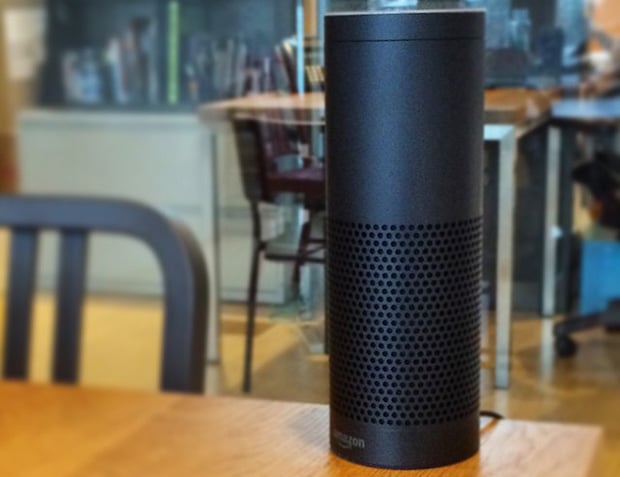Amazon Drops Alexa First Amendment Defense In Murder Case After Defendant Agrees To Share Echo Data
Whether or not audio recorded by smart speakers such as Amazon's Echo is protected by the First Amendment of the United States is a legal argument that will have to wait for another day. That is because Amazon is no longer fighting a subpoena that was issued in an Arkansas murder case after the defendant gave the online retailer permission to share any data that might have been collected by his Echo device.
James Andrew Bates of Bentonville, Arkansas, has been accused of drowning his friend Victor Collins in a hot tub back in November 2015. The two were having drinks and watching football with a couple of other friends on the night the alleged murder took place. As the night went on, one of the friends left the residence while the other two took Bates up on his offer to spend the night. Sometime after, Collins was found dead in Bates' hot tub. Authorities determined Collins was strangled and then drowned.

The Bentonville police also discovered that Bates owned an Amazon Echo. Believing that the recordings from the speaker may provide evidence in the murder trial, the prosecution requested that Amazon share any data that was collected. Amazon refused on the basis that the recordings might reveal too much about the user and his private life, and that police would have to demonstrate a "compelling need" in order for Amazon to comply.
"At the heart of that First Amendment protection is the right to browse and purchase expressive materials anonymously, without fear of government discovery. The responses may contain expressive material, such as a podcast, an audiobook, or music requested by the user. Second, the response itself constitutes Amazon's First Amendment-protected speech," Amazon said.
Echo is an always-on smart speaker that is constantly listening for the wake word, "Alexa." When invoked, it begins recording audio, which is then sent to and stored on Amazon's servers. The recorded audio that gets stored includes a fraction of a second of audio before the wake word.
With Bates giving Amazon the green light to share its data, the legal tussle over recorded data will have to wait, though perhaps not for long. A recent report predicted that the number of Internet of Things (IoT) devices will quadruple to 5.4 billion by 2020, so it's probably only a matter of time before a similar situation presents itself.
James Andrew Bates of Bentonville, Arkansas, has been accused of drowning his friend Victor Collins in a hot tub back in November 2015. The two were having drinks and watching football with a couple of other friends on the night the alleged murder took place. As the night went on, one of the friends left the residence while the other two took Bates up on his offer to spend the night. Sometime after, Collins was found dead in Bates' hot tub. Authorities determined Collins was strangled and then drowned.

The Bentonville police also discovered that Bates owned an Amazon Echo. Believing that the recordings from the speaker may provide evidence in the murder trial, the prosecution requested that Amazon share any data that was collected. Amazon refused on the basis that the recordings might reveal too much about the user and his private life, and that police would have to demonstrate a "compelling need" in order for Amazon to comply.
"At the heart of that First Amendment protection is the right to browse and purchase expressive materials anonymously, without fear of government discovery. The responses may contain expressive material, such as a podcast, an audiobook, or music requested by the user. Second, the response itself constitutes Amazon's First Amendment-protected speech," Amazon said.
Echo is an always-on smart speaker that is constantly listening for the wake word, "Alexa." When invoked, it begins recording audio, which is then sent to and stored on Amazon's servers. The recorded audio that gets stored includes a fraction of a second of audio before the wake word.
With Bates giving Amazon the green light to share its data, the legal tussle over recorded data will have to wait, though perhaps not for long. A recent report predicted that the number of Internet of Things (IoT) devices will quadruple to 5.4 billion by 2020, so it's probably only a matter of time before a similar situation presents itself.

